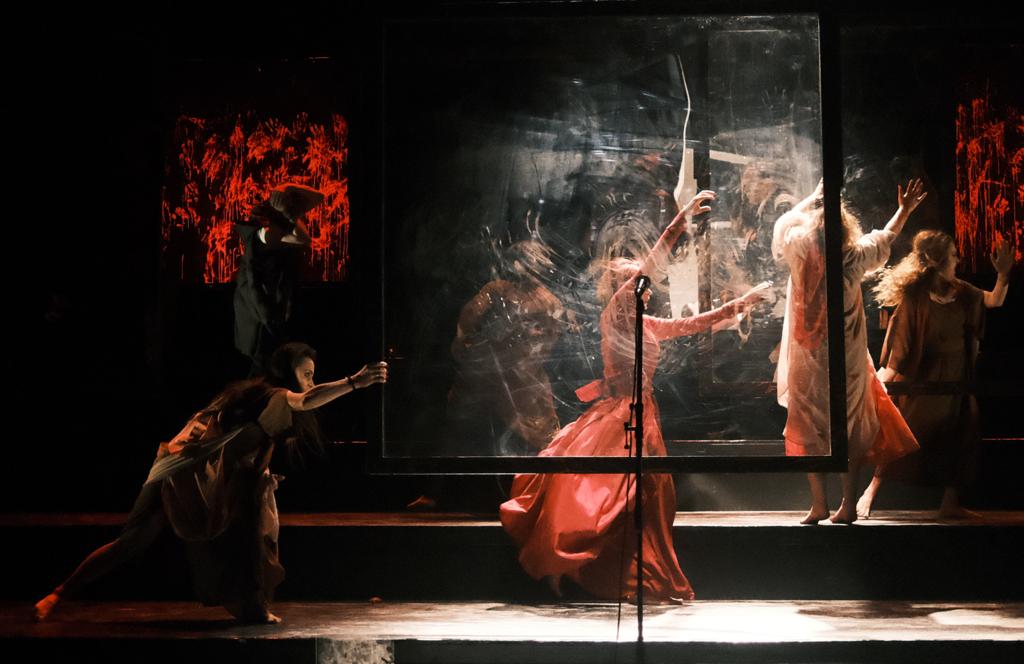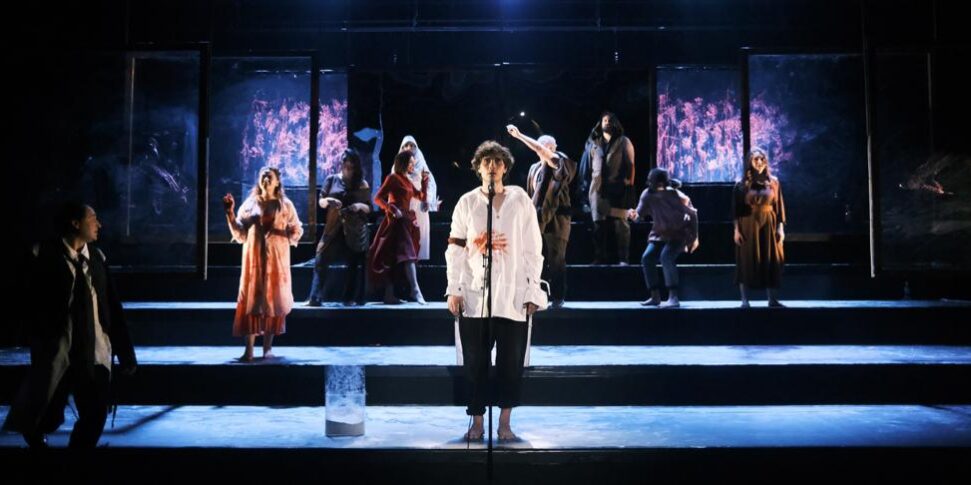As a new production of Orpheus Descending premieres at the National Theatre of Albania. Flamur Dardeshi spoke with the director and the cast about the appeal of Tennessee Williams and why theatre makers should not be afraid to shock the audience.
In 1971, “The People’s Theatre” of the People’s Republic of Albania attempted to stage Tennessee Williams’ play Orpheus Descending. Rehearsals were underway, the scenography was by Ali Oseku, then a 27-year-old painter who had recently graduated from the School of Fine Arts in Tirana, and the production was to be helmed by one of the best directors of the period, Mihallaq Luarasi.
Everything seemed to be going well, yet the dress rehearsal would be the last performance of the show. It was cancelled for unstated (but easily guessible) reasons. It appears that it caught the attention of the communist censor’s keen eye. Two years later, in one of the most significant attacks by the dictatorship against art and artists, the set designer Ali Oseku and the director Mihallaq Luarasi would both be imprisoned in communist camps.
Now, 52 years later, the National Theatre is “bringing back” Orpheus Descending, this time in a production by the Polish director Nastazja Domaradzka, who currently resides in the United Kingdom.
Domaradzka is making her National Theatre debut following her production of The Women at the National Theater of Kosovo. After staging Women, she received an invitation from the director of the National Theatre to put on a show in Albania, united by a shared admiration for the work of Tennessee Williams. When National Theatre director Altin Basha, asked Domaradzka which Tennessee Williams play she wanted to put on stage, she replied, “Orpheus Descending,” to which he repied, “I was hoping you would say that,” she tells me.
Orpheus Descending in 1957. The play is a modern retelling of the ancient Greek legend of Orpheus and deals with the power of passion and art to redeem and revitalize life. The plot takes place at a dry goods store in a small, corrupt southern town characterized by bigotry, racism, and narrow-mindedness. Val, a young man with a guitar who symbolizes the god of vitality, Orpheus, enters this scene. He is hired by Lady, a middle-aged woman whose elderly husband, Jabe, is dying, to work in her store. Lady can’t help but be drawn to Val because he seems to present her with the chance at a fresh life. The play depicts the growth of passion, love, and life between them up until the tragic ending.
“It’s a play about a broken society and divisions,” Domaradzka says. In the play Tennessee Williams took the myth of Orpheus and set it in the America of his time; Domaradzka believes that text should reflect the place and time in which it is staged, which is why she has adjusted the play for today’s reality, in modern-day Albania.
“Theatre should remain relevant,” she believes. “I don’t believe in ‘museum theatre,” she adds, explaining that she sees this piece and its adaption to an Albanian reality as a play well-suited to a post-dictatorship society. What is left after the fall of the dictatorship is chaos and corruption, and so the arrival of Orpheus – an idealistic outsider – into this society is also a threat, which is why survival is tough.
Domaradzka’s research process began before she arrived in Albania. “We conducted a type of laboratory work online for approximately a week, to get to know one another,” she says. This allowed Domaradzka to develop clearer ideas about who should play each of the characters. Two actors—Ema Andrea and Igli Zarka—from outside the National Theatre ensemble were also added to the company.
The play, which consists of three acts, can be perceived as being divided into three decades. As a result Val, the main character, will be played by three different actors; Igli Zarka, Genti Deçka, and Lulzim Zeqja.
Zarka believes that Val is the one who is unaware of the society he has joined and unintentionally becomes a whistle blower of that society. “His very existence in this society is a denunciation; he is an artist who becomes a public enemy because he is different.”

Orpheus Descending, National Theatre of Albania
As Andrea, who portrays Lady, explains there were a number of women in Tirana who resembled the character, particularly under the dictatorship. They were foreigners—whether Italian or Russian—who, once the borders were closed, ended up stuck inside this society where they would always be outsiders, living their lives in their own little bubble and recalling their past. Nevertheless, viewed through a wider lens, Lady wasn’t the only “hostage”, rather the entire society, she explains.
Andrea describes the character of Lady as a spring – Val’s presence in town and in her life awakens this spring inside of her. “That’s why she also strongly seeks to be caught in this” says Andrea. She wants to resurrect the spring that was once present within her before Jabe seized control of it.
Jabe, played by Neritan Licaj, is the ruler of this “hell.” He is in charge of this rotten society. “It’s like Hades and Jabe doesn’t let anyone live here,” he says, but, the existence of hell cannot be attributed to a single person, he adds, rather, “it is the people who make this hell.”
Having the experience of working both in Great Britain and in the Balkans, Domaradzka believes that the theatre scene in the Balkans is fertile ground. “There is a great desire here to seek alternative methods for creating play,” she says. Also, she adds, “because to the repertory system, theatre is less capitalist here; you don’t need to sell the performance, and you have more liberty to create the kind of plays you want”.
Essentially, she explains, Orpheus Descending is a show about art and the artist, the role of art in society, and most importantly, the passion for art. “I think it’s appropriate to occasionally feel shock and discomfort in a theatre,” Domaradzka explains. “Especially during Covid, I constantly questioned the purpose of theatre and why this particular art form exists. But nonetheless, theatre is unique because it is a shared experience that takes place in a room, in real time.” she says. “I believe that art is there to keep people alive and shake them up because we are losing a lot of compassion in these times we are living in.”
She hopes that the audience will be affected by what is happening on stage in Orpheus Descending. “I hope people will feel shaken and intrigued.”
Further reading: interview with Ema Andrea: “Freedom is not something that is given to you, it’s something you fight for”
Further reading: interview with Lulzim Zeqja: “I always try to understand the character from the inside out”
Flamur Dardeshi is a freelance writer based in Tirana. He has contributed in the areas of translation, analysis, and poetry. His main fields of interest are literature, cinematography, and theatre.








